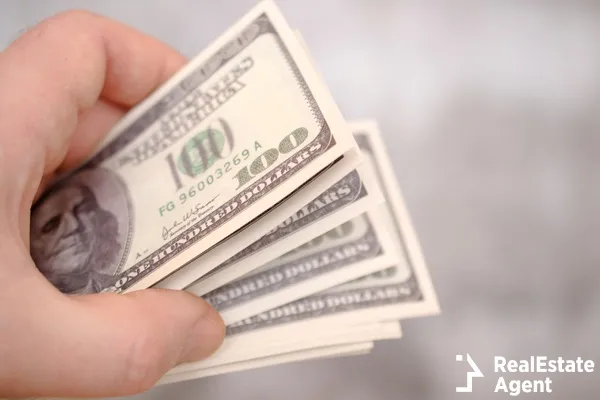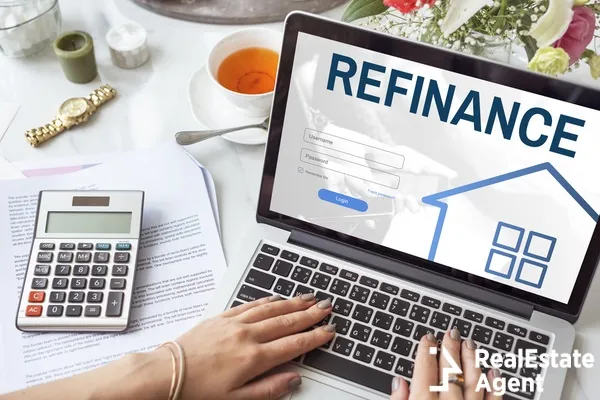
We all have pictured the perfect home where we would love to spend the rest of our lives. Owning a home is one of the biggest achievements someone can get during their lifetime. Aiming for the ideal home can be a struggle and discouraging sometimes. It doesn’t come cheap but in the end, seeing the fruits of your labor is more than worth it and it gives you a sense of fulfillment.
While getting approved on a home loan such as FHA requires a significant amount of money for the down payment depending on the home price. Or in case you applied for a USDA home loan or other zero down payment home loans, don’t get too comfortable thinking it will be cheap. You probably already heard that closing on a home loan might cost you an additional 3 to 6 percent of the mortgage.
Depending on your mortgage this might come at around $9,000 to $18,000. It might be easier to pay it off out of impulse which is understandable, but there is an alternative solution. You can easily save quite a significant amount of money on your closing costs if you research a bit. Follow a couple of negotiation tips for lowering your closing costs and you should be on your way to getting your dream home along with some extra cash which can be used as you see fit.
What is included in closing costs

Closing costs are merely fees, services and expenses required to finalize a mortgage. These costs apply for both buying a home or refinancing. Most of these costs are made by the buyer, but the seller might have to pay a few fees as well.
The best way to deal with closing costs is to consider them a one time expense and take the sum of money out of your pocket. On the other hand if it is too much to pay at once you might be able to apply it within your loan, if the lender allows it. Also, be aware that by doing that you will pay more monthly for your mortgage.
All the aspects related to the closing costs are featured in the Loan Estimate and the Closing Disclosure received from the lender prior to the settlement. This will make it easy for you to follow up with your payments and you can ask any questions related to closing costs at anytime. Here are some of the closing costs included in the agreement.
Property-related fees
Home inspection - This is required by the lender in order to verify the structural integrity of the home and its condition. No lender would want to give you a loan towards a property that is in bad condition. If the home inspection doesn’t come out as anticipated, you might want to try to negotiate a lower price, but this is highly dependable on how bad the conditions of the home are. You also have the option to opt for a different type of mortgage loan. In terms of closing costs, home inspection might cost you about $300 to $500 but it is well worth it.
Appraisal fee -Another thing included in the closing costs is the home appraisal. An appraisal for the home you want to purchase is required for two reasons. The loan officier wants to know if the amount of money you want to borrow for it is justifiable and if they would be able to recoup the value of the home back. Disputing the home appraisal if it is too low might be something you will have to deal with. On average the cost of an appraisal done by a certified professional is around $300 to $400.
Mortgage insurance fees

Mortgage insurance application fees - with so many different types of loans an application fee is required for them. This applies for mortgages as well and if the downpayment for your mortgage is less than 20% you might need to make a private mortgage insurance. As far as closing costs go for this application it can vary for one lender to another.
FHA, VA and USDA fees - If you apply for any of these three loans your closing costs will have to include supplementary fees. The Federal Housing Administration (FHA) requires you to pay an FHA mortgage insurance premium and a guarantee fee of 1.75% of the loan amount. For Veterans Affairs AKA a VA loan, you have to pay an upfront guarantee fee between 1.25% to 3.3% of the loan amount. Lastly, the USDA requires a guarantee fee of 1%.
Upfront mortgage insurance - Lenders require you to pay the first year of mortgage insurance upfront. Others might ask for a bigger sum that covers the life of the loan. This amount can be anywhere between 0.55% up to 2.25% of the mortgage insurance price.
Loan fees
Application fee - This is a cost required for processing your application. This cost covers credit checks and administrative expenses as well. The amount you need to pay for the application fee might vary depending on the bank offering the loan and the time it takes to process the application.
Attorney fees - Attorney’s are required at the moment of closing but not in all states. Legal matters such as documentary reviews of the agreements and the escrow account fees are included here. The charge here might vary depending on how much time your attorney spends on your application.
Assumption fee - If you pick an assumable mortgage from a seller, that allows you to take over the remaining balance of the loan, then you will have to pay a fee based on the remaining balance.
Prepaid interest - Some lenders might require you to pay the interest rate that is accrued on the mortgage between the time of settling up until the first day of the next month. This closing cost might be requested from you so be prepared to pay it.
Loan origination fee - This is an important one and it has to do with administrative cost related to processing and creating the mortgage. This is also known as the underwriting fee and the home loan underwriting process that requires this fee. This can be as much as 0.5% of the amount borrowed which for a $400,000 loan it would mean that the origination fee is $2,000.
Discount points - This fee can be avoided because it is the borrower's call if he wants to pay for discount points. By paying for a discount point you reduce the interest rate you pay for the life of the loan. The cost for one point is 1% of the loan amount. This might be a way to save from costs of closing if the interest rate is already low. It might only be worth it if you plan to stay in the property for a long time.
Property taxes, fees and insurance
Property taxes - About two months worth of city and county property taxes are required at closing. Here is mentioned the monitoring fee, tax status search fee, flood determination and escrow property tax.
Annual assessments - In case the homeowners association requires this annual fee you would have to pay it upfront included in the closing cost.
Homeowners insurance - Another closing cost that might be requested by the loaner to be paid at the time of closing is the homeowner’s insurance. Some condo associations might include this in a monthly fee and this cost can vary depending on your home value.
Title fees
Title search fee - A title search is conducted in order to find out if the house is entitled to the owner and there are no outstanding claims against the property. The title search can be laborious if it is not computerized and the cost can be around $200, but it varies based on region.
Lender’s title insurance - This acts as protection for the lender since errors in the title search might occur. Therefore, in case someone claims ownership of the property after it’s sold the lender is covered and it lasts until the loan is paid off.
Owner’s title insurance - Similar to the lender’s insurance only this one protects you from title problems and claims that are made on the property after closing. This lasts as long as you own the property and the owner policy will cost about 0.5% to 1% of the purchase price.
Negotiate closing costs with the lender

You can notice that the taxes and fees are quite extensive. It is necessary to cover these costs at closing but there are a couple of ways to reduce the closing costs. Be aware that not every closing cost is negotiable. Any government related fee or charge is not negotiable, so you will have to pay it as is. On the other hand, services provided by a third party are not something to negotiate with the lender.
That means you won’t have much room to negotiate appraisal costs, flood determination and credit report fees. Here we outline some of the fees you can’t negotiate:
- Homeowner insurance
- Title insurance
- Origination/underwriting fees
- Application fees
- Rate lock fees
- Tax service fees
- Appraisal fees
- Property taxes
- Transfer taxes
On the other hand, there are plenty of opportunities to negotiate a better mortgage with your lender. Negotiating origination fees, discount points, and lower interest rates with your lender could save you a lot of money. While some aspects related to closing costs cannot be negotiated, you can work on lowering some of these closing costs.
Some of the services included in the closing costs, such as pest inspection fees, survey fees and title searches, you can shop around for. Make sure you search around for the services with the best rates for the lower prices. Here are the services you can shop around for:
- Survey
- Title search
- Title insurance
- Lender title policy
- Settlement agent
- Pest inspection
Most notably, title insurance and settlement services are the most expensive ones so here is where you can save the most.
Negotiate closing costs with the seller

On the sellers side, there are some closing costs that are covered by the seller. In most residential transactions commonly the real estate agent representing the seller and the buyer take their commission from the seller. Our top local real estate agents representing home buyers will surely find you some of the best home deals on the market.
Also, the development of virtual tech made the process of closing real estate deals possible from a distance, so now it’s possible to negotiate and close remotely.
In order to save some money from the seller's side, you can negotiate closing costs with the seller by having him/her pay for them completely. While this might sound like the seller would be losing money on the transaction it isn’t exactly what it seems.
Seller-paid closing costs or a seller concession is common in most transactions. If the buyer doesn’t have the required amount for the closing costs he/she can have the seller pay on the buyer’s behalf. In the end this cost will be folded in the loan so no one is at a loss.
The way this works is the seller accepts a slightly higher offer for the home just enough to cover the buyer’s cost of closing. For example, the seller wants to get $300,000 for his home. The home buyer has the required amount for the down payment, but not enough for the closing costs. By having the seller accepting a higher offer of $306,000, the $6,000 would contribute to the buyers closing costs.
Seller’s might easily accept to pay closing costs in an attempt to sell the home quicker but that might not be the case in a competitive marketplace. Also, if the home buyer can’t afford both the downpayment or the closing costs the seller might lose the deal.
This is a win-win scenario since the seller will hit their net target of $300,000 because of the increased purchase price. This amount will be financed into the amount borrowed for the loan. The only issue might appear at the appraisal since the appraisal must meet the value necessary for this to work. Otherwise, further negotiation with the seller needs to be done.
Ask the seller to sweeten the deal by dropping the price in order to cover the closing costs. Depending on the market place negotiating with the seller could be difficult. If the inventory is low, buyers might be competing aggressively in which case sellers don’t make many concessions. Also there are a few real estate closing tips that might help you negotiate some prices in order to get a better deal.
Can you negotiate closing costs on a refinance?

Closing costs for refinancing can come at around 2 to 6 percent of the loan amount. When it comes to refinancing you should also consider lowering your closing cost.
You can ask for a no-closing cost refinance, which has its benefits and downsides. On the bright side you won’t need to bring any money to the table for closing costs on your refinance. On the other hand, having a no-closing cost refinance can lead to a higher interest rate in order to cover the closing costs.
You might consider shopping around for another lender. With different lenders offering different interest rates, terms and costs for borrowing money from them you might end up finding something that is better for you overall.
Negotiating a reduction in lender fees for your finance is an option you should consider. As mentioned before there are some areas that are non-negotiable, but on others you can ask for a lower price. The lender might be willing to reduce the origination fee. Also, lower the amount you pay for title insurance by shopping around.
Also, fierce competition between lenders because of low interest rates might go to a greater extent in order to remain your mortgage loan provider. But, discounts are not offered unsolicited so make sure you speak up.
Conclusion
Becoming a homeowner can be costly in the beginning because of all the closing costs involved in the process of getting a loan. With a couple of simple tips and ideas you can go around and negotiate your way through the process in order to save some money. This will ensure an easy real estate transaction that is going to make you a proud homeowner with some extra cash in your pocket.
If you like this article make sure you share these negotiation tips with your friend on your social media accounts. Let us know in the comment section which of these approaches did you take in order to reduce your closing costs?
















Have a question or comment?
We're here to help.